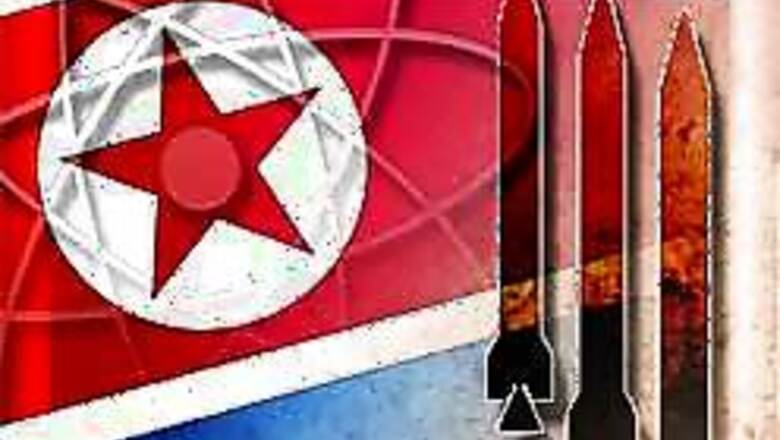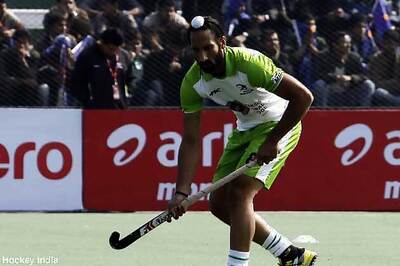
views
Taipei: Most Asian nations - except China and South Korea - would cheer if the US knocked down a long-range missile tested by North Korea, but a failed attempt to intercept the weapon would send serious shivers through the region, analysts said.
Many countries in Asia still rely on America to keep the peace in the complex region - home to some of the world's most dangerous potential flashpoints: the Taiwan Strait, India-Pakistan and the Koreas.
So the United States is being closely watched in Asia as it deals with North Korea's possible preparation to test fire a Taepodong-2 missile, which may be capable of hitting America's mainland. The US believes the missile is being fueled for a launch.
Although Washington has said that it would pursue diplomatic means to stop a missile test, there has been speculation the US would use its fledgling missile defense system to strike down the weapon.
Would the move evoke support, fear, condemnation or silent relief from Asia?
K S Nathan, a regional security analyst at the Institute of Southeast Asian Studies in Singapore, said Asia would be pleased to see the US stop the missile test.
''I think the general consensus would be to see that North Korea is disciplined in some way or prevented from launching the missile,'' Nathan said.
But those who wouldn't be clapping in public might include South Korea and China, some analysts said.
''South Korea probably wouldn't support it openly,'' said Kenneth Wells, director of the Center for Korean Studies at Australian National University. ''There would be some division in the government, but if they were forced to make a comment one way or another, I suspect it would be that it wasn't a helpful thing to do.''
China would also frown on a US attempt to hit the missile, said Andrew Yang, a senior analyst at the Chinese Center for Advanced Policy Studies in Taipei.
''It would mean that the US is adopting a confrontational strategy against North Korea and that goes against China's policy of using dialogue,'' Yang said. ''The bottom line for China is that they don't want any escalation of tension in the region.''
PAGE_BREAK
China might also be wary of a successful strike because it would be a display of an improved US missile defense system, which might eventually be used against the Chinese.
For some governments, Washington's response to North Korea will be seen as a barometer of how committed the US would be to protecting them against future threats.
Some have worried that America's troubles in Iraq might lead to a wariness about getting involved in other foreign conflicts.
Taiwan will be watching how the missile test plays out because it may have to rely on US forces to help defend against a Chinese attack, Yang said. Taiwan and China split amid civil war in 1949, and Beijing has repeatedly warned it would use force to unite the two sides.
Yang said that for the Taiwanese, knocking down the missile ''would send a clear message that the US would not be threatened by belligerent military actions. It would send the message that the US is willing to defend its allies in the region.''
Japan is another country that sees the North Korean missile dispute as a test case for how it might be treated in the future, said Takehiko Yamamoto, international politics professor at Waseda University in Tokyo.
A successful strike would also lead to more calls for a stronger US-Japan security alliance. But if the US missile missed its target, Japanese public opinion could become split. Some would want more military spending to improve the system, while others would call for more diplomacy, he said.
Intercepting the missile would also please Southeast Asian nations, said Hugh White, head of the Strategic and Defense Studies Center at Australian National University.
''I think countries in Southeast Asia would keep quiet but would be quietly relieved,'' White said. ''Southeast Asian nations are inherently conservative. They don't like to see change in the region. Most of them would quietly like the idea of the US being able hit the missile.''
White said the countries wouldn't clap loudly out of deference to China.
Failing to hit the missile would likely be a colossal embarrassment for the US and would fuel doubts about whether the missile defense system is really key to the security umbrella.
PAGE_BREAK
America's missile defense system has suffered multiple failures since US President George W Bush ordered that the program to be accelerated in 2001. The system includes about a dozen interceptor missiles in Alaska and California and on some Navy ships. The missiles are linked to a network of satellites, radar, computers and command centers.
Wells, the professor at Australian National University, said it would be best for the missile defense system to be an unused threat. If the US misses, then it would signal the defense system isn't working well and this would cause unease in the region.
White said the US has a ''fair shot'' of hitting the missile but it could be difficult.
''Intercepting missiles is a very chancy business these days,'' White said. ''I wouldn't bet my next week's drinking money on it.''
White said it might be gratifying for the Americans to knock down the missile but they would be better off letting the North Koreans launch it.
''They'll learn a lot about the state of North Korean technology,'' White said. ''A lot of my friends in the CIA are saying, 'No, no, no. Let it fly.''


















Comments
0 comment